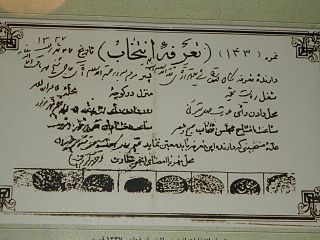
The Isfahan National Holy Association was the main political and decision-making bureau of Isfahan, Iran during the first Persian Constitutional Revolution period. The members of the council were elected by the people of Isfahan and Nurollah Najafi Isfahani chaired the council. The association was formed between years 1906 and 1908, namely from the migration of Qom to the 1908 bombardment of the Majlis at the Fort of Chehel Sotoun in Isfahan.

Kameel Ahmady is a British-Iranian scholar working in the field of social anthropology, with a particular focus on gender, children, ethnic minorities, and child labour. Kameel Ahmady, born in 1972 in Naghadeh, West Azerbaijan Province, is an Iranian-British researcher and social anthropologist known for his research and activities in the fields of social anthropology and harmful traditional practices. He is the coordinator and developer of more than 11 research study books and 20 scientific articles in Persian, English, Turkish, and Kurdish on subjects such as child marriage, temporary marriage, White marriage, female genital mutilation/cutting (FGM/C), Male circumcision, child labour and children's scavenging, LGBTQ+ issues and identity and ethnicity.
Order of Knowledge is one of the badges of honor in Iran. Its establishment dates back to the Qajar dynasty era under the name of "Order of Science"; later in the Pahlavi dynasty the name was changed to "Order of Knowledge". Finally, it was reestablished in Islamic Republic era by "Council of Iran Ministers" on November 21, 1990.
Order of Research is one of the badges of honor in Iran, established by "Council of Iran Ministers" on November 21, 1990. According to "Article 8" of the "Regulations on the Awarding of Government Orders" of Iran, the "Order of Research" is awarded to individuals who have been the origin of fundamental transformation or rare service in the following ways:
- Introducing new research methods and techniques
- Studies and research that are the source of scientific change
- Finding new research methods
- Transfer of fundamental research to applied fields
- Every important innovation, originality, invention, and discovery
Abdolmohammad Ayati was an Iranian author, translator and researcher in the field of philosophy, history and Persian and Arabic literature. He was born on 5 May 1926 in Borujerd, Borujerd County, Lorestan Province, Iran and died on 11 September 2013 in Tehran, Iran. He was selected at the second Iran's Book of the Year Awards for Arabic to Persian translation of the book History of Arabic Language Literature.
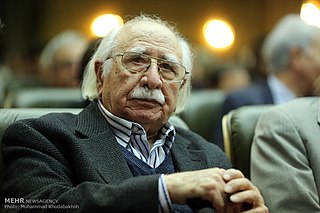
Fathollah Mojtabaei is an Iranian author and historian. He is a permanent member of Academy of Persian Language and Literature and a member of the faculty of the Center for the Great Islamic Encyclopedia.

The Iranian Law and Legal Research Institute, formerly Allameh Legal Encyclopedia Research Center, is a scientific and juridical research institute, composed of four groups: encyclopedia writing, legal theorization and intellectualism, studies on social impact of laws, and studies on "extra" laws. Operating under the license of the Ministry of Science, Research and Technology of Iran, this research institute is one of the first legal entities to be recognized as a knowledge-based company by the Vice-Presidency for Science and Technology of Iran.

Rasul Jafarian is an Iranian clergyman and researcher in field of Iranian history. He is currently the Professor of the Department of History at the University of Tehran, the Director of The specialized library on Islam and Iran, and the Director of the Central Library of the University of Tehran. Rasul Jafarian became a permanent member of the Academy of Sciences of Iran in June 2018 with the vote of the members of the General Assembly of the Academy of Sciences.

Poopak Niktalab is an Iranian education theorist, author, and literary researcher, especially of children's literature.
The De-escalation policy of the Islamic Republic of Iran is a strategy in Iran's foreign policy that began during the second term of Akbar Hashemi Rafsanjani's presidency and with the presidency of Mohammad Khatami since 1997, special attention was paid to this strategy. Hassan Rouhani also mentioned the de-escalation policy as his top priority during his presidency.
The Look to the East policy is a strategy in Iran's foreign policy that has been proposed since the beginning of Mahmoud Ahmadinejad's presidency in 2005. Of course, there is no consensus among experts as to which countries are among the goals of the Look to the East policy, and from which point of view this policy should be viewed, and there are at least three different views.
Seyyed Qutb al-Din Mohammad Neyrizi was a prominent Iranian mystic of the Safavid period. He was 32nd Qutb of Zahabiya genealogy. All historians have written his name as Mohammad and his title as Qutb al-Din. In addition to his high position in the history of Shiite mysticism, he was one of the most important and influential political thinkers of the late Safavid period.

The United States Cultural Diplomacy in Iran refers to the use of soft power of cultural diplomacy by the US government towards Iran in order to achieve its own interests.

The British occupations of Bushehr or Bushire under British occupation refers to the three times British forces entered Bushehr and occupied this area in Iran during the rule of the Qajar dynasty, before and during World War I.

The book In the Name of Tradition is the outcome of a comprehensive study on female genital mutilation/cutting (FGM/C) in Iran conducted by Kameel Ahmady, an anthropologist and researcher, and his colleagues. It was published in Farsi by Shirazeh in 2015 and followed by an English version by Uncutvoice publishing house in the same year. The study explores why and how FGM is practised in Iran. The researchers aimed to uncover the various dimensions of FGM between 2005 and 2015 in four provinces: West Azerbaijan, Kurdistan, Kermanshah, and Hormozgan.
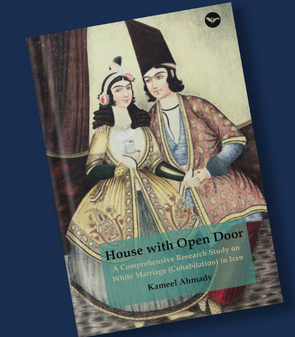
House with Open Door is a book by Kameel Ahmady that examines the social phenomenon of cohabitation, called "white marriage" in Iran, in which couples live together without legally marrying.
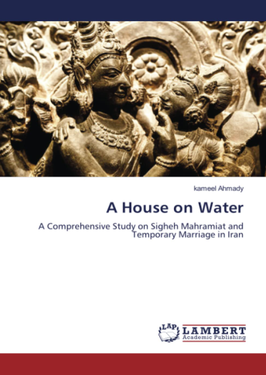
A House on Water is a book that explores the social and psychological impacts of temporary marriage and religious concubinage in Iran, researched and coordinated by Kameel Ahmady, a British-Iranian anthropologist and social researcher. The book is based on a research project that Ahmady and his team conducted between 2017 and 2018 in three major cities of Iran: Tehran, Isfahan, and Mashhad. The book aims to provide a historical overview of temporary marriage in Iran and the world and to examine its prevalence among different social groups and its consequences for those who choose this type of marriage.
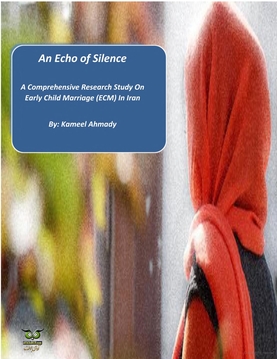
Echo of Silence is a book related to the issue of women's studies in Iran. Kameel Ahmady, a social anthropologist and researcher, supervised a research book titled "Echo of Silence", which is a study about child marriage in Iran. It was published on October 11, 2016, which is also the International Day of the Girl Child. The book is based on research that Ahmady and his colleagues conducted in seven provinces of Iran between 2015 and 2016. They aimed to understand the nature of child marriage in Iran and provide suggestions for social and cultural policymakers. The Persian version of this book was published by Shirazeh Publishing House and unveiled national in library and the English version published in 2017 by Nova publishing in USA.
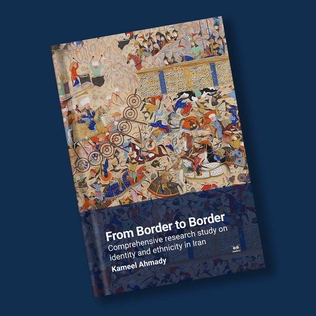
A research study entitled From Border to Border was by Kameel Ahmady, a British Iranian anthropologist and social researcher, and his colleagues to examine the challenges and opportunities of ethnic and local identities in Iran and the interaction of the political system with various ethnic groups and local identities between 2019 and 2021 in 13 provinces of Iran. The results of this research were published in a book with the same title by Mehri Publishing House in London in 2021. The book was later reprinted by Avaye Buf publishing house in Denmark. This book has been published in three languages Persian, English and Kurdish.
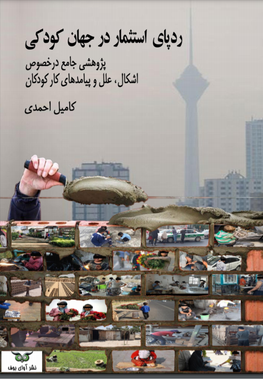
The book Traces of Exploitation in the World of Childhood is a study by Kameel Ahmady, an Iranian-British researcher and anthropologist, and his colleagues, focused on investigating child labour in Iran. The book was published by Avaye Buf in Farsi and Kurdish languages in 2021, coinciding with World Child labour Day on June 12. The publication came after the completion and release of the research project " Childhood Yawn," which Ahmady supervised for the Association for the Protection of Children and Adolescent Rights. The book is part of a series of activities and research that Ahmady and his colleagues have conducted to explore and deeply investigate different forms of children's work and the reasons that lead them to this type of work. The book highlights the causes and reasons behind child labour, which include providing a part of living expenses, learning skills for future employment, and the impracticality of formal education and training in acquiring skills and finding a job in the labour market. It also introduces some of the most significant consequences of child labour, such as the exploitation of children's work, emotional and psychological crises, personality disorders, and damage to the process of socialization.













